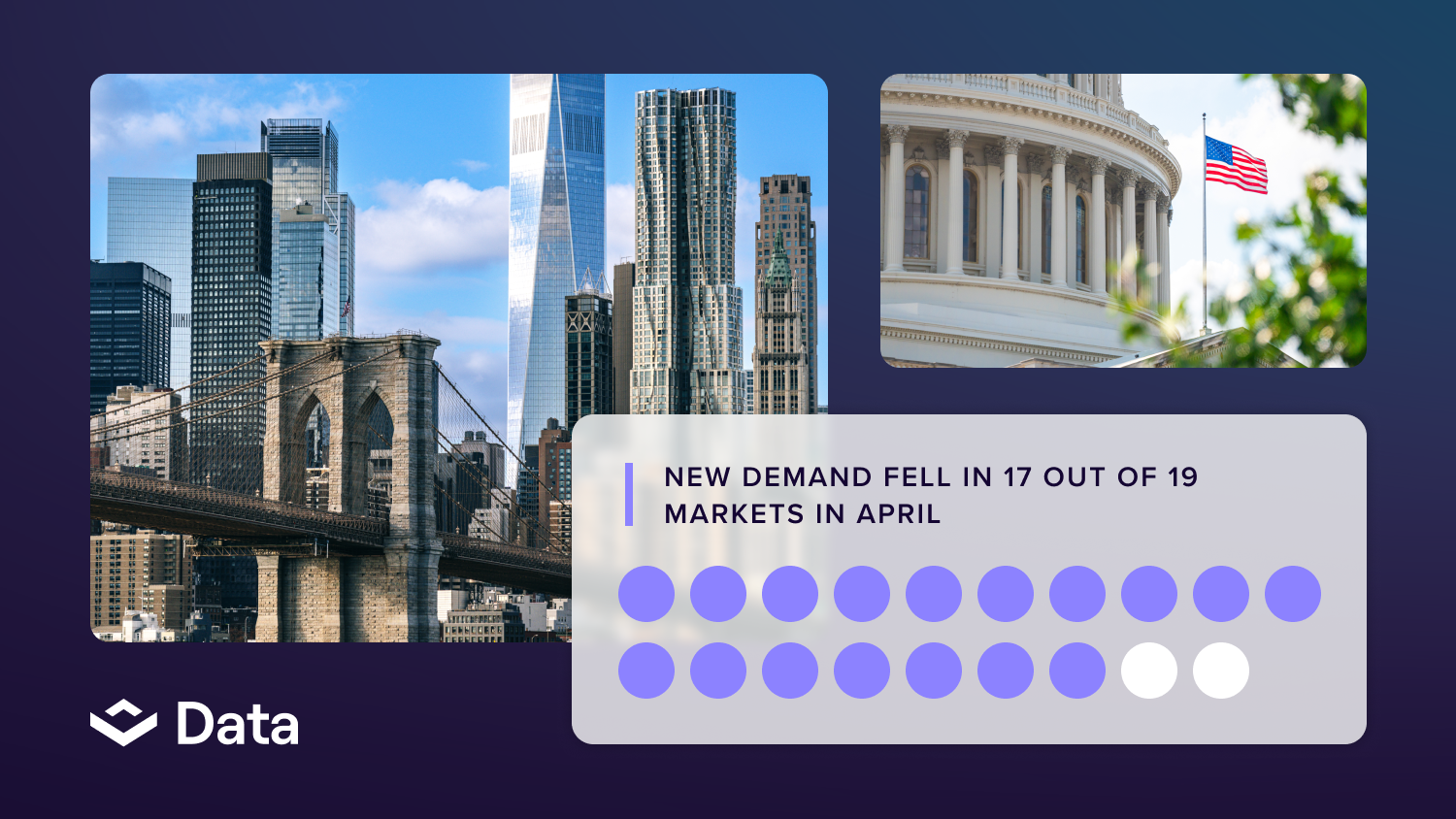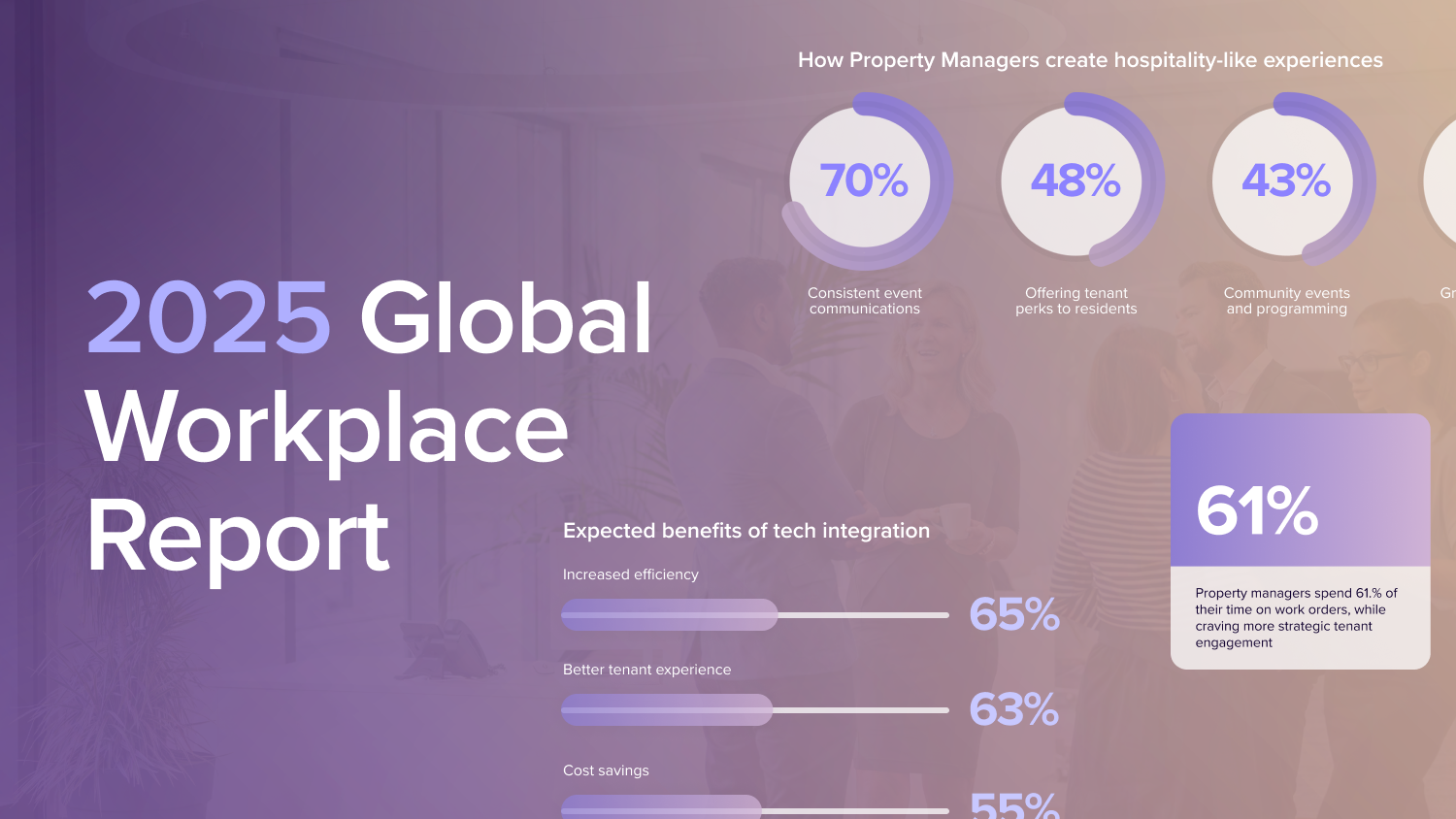
If there’s one thing every CRE professional can agree on, it’s that how we work has forever changed — and with so much change comes so much opportunity.
At CREtech New York, a few critical themes continually resurfaced. Couldn’t make the event in person? Our team put together our top takeaways. Read on to find out what’s keeping the brightest leaders in CRE up at night.
The future of the office
These days, words like “flexible,” “nimble,” and “balance” are often used to describe the ideal future state of the office.
Surveys show that 85% of employees prefer the hybrid work model over being in office five days a week. Furthermore, 64% of employees would quit if a company is unable to offer this flexibility.
Arsha Cazazian, Director of Global Real Estate, Shearman & Sterling, LLP, weighed in on what tenants are looking for today: “Tenants are becoming more educated and evolving into something new. Sentiment and experience are important — it's about the culture of a building.”
This goes beyond grabbing a donut and coffee in the lobby. It’s about creating an interconnected ecosystem that serves every occupant in the building, however they choose to interact with the building.
With so many accustomed to working from home, it’s important to find a way to bring that same level of comfort to the office.
“We need to expand our amenity mindset, including ergonomics, sensory, or quiet spaces in the office,” said Tiffany Mizen, Head of Real Estate & Facilities at Bridgewater Associates. “We want people to come to work to be productive.”
Tenant experience brings life, connection, and functionality to a building. Read our recent Q&A with Rob Eroh, VTS' VP of Product for Tenant Experience, to learn what the future of work looks like and his vision for tenant experience.
Unlocking quality insights with data
It’s more important than ever before to change how we think about data.
Gijo Mathew, Chief Product Officer at VTS, said it best. "We need to make a strategic change in how we think about data and data quality. We need to focus on how to fundamentally think of data in a different way to service customers."
From how to differentiate between meaningless and impactful data, and optimize these insights to create action, it’s time to adopt new data-centered strategies.
“People look towards data when things are uncertain,” Gijo elaborated.
Another layer to this is data asymmetry. “People keep information private, and there are a lot of closed platforms, which is the old way of doing it,” he said. “Now, we need more open platforms. The closed wall of the platform is changing. Not just data but services provided, so we're not just looking at data points.”
With more transparency and openness into data systems, broader business problems can be addressed and solved.
Aviva Fink, Vice President of Global Marketing at Altus Group, agrees. "VTS shows that there is an appetite for the adoption of technology. As proptech has matured, there is more of an appetite to adopt and solve data questions.”
A growing need for proptech technology
There’s been a 30x growth in proptech investment seen over the past decade.
With new technology, staff and operations costs are key considerations. In fact, a major blocker for companies looking to become more technology-centric is legacy culture.
Jesse Carrillo, Chief Innovation Officer at The Howard Hughes Corporation, spoke of what it takes to successfully implement technology. “Not everyone will get on board, and that’s a part of it,” he said. “As long as you have enough support, you can educate those who may not be immediately on board, redistribute, or find an alternative way to move forward.”
Dan Jackson, Managing Director and Chief Information Officer at Starwood Capital Group, echoed this sentiment. “People think technology is difficult, but it’s not. What’s difficult is having people change the way they’ve been doing things. This requires change management.”
Looking for partners that integrate well with your company’s team will make all the difference. After all, the rewards technology brings are well worth it.
“Technology drives innovation and business,” Jackson said simply.
The proptech space is undergoing a technology revolution, which will bring forth new ideas, new capabilities, and impactful change. The right technology partners will help to facilitate this change.
Other notable themes:
- ESG and sustainability
- Blockchain, Metaverse, and NFTs
- Residential and multi-family
A pivotal time for CRE owners and operators
Understanding how to apply the right insights, solving for the great return to work, and keeping sustainability top of mind are trends that will continue into 2023.
How leaders solve these issues will be critical in the years to come.
To stay competitive, leading landlords are investing in tenant experience technology to provide tenants with a premium, tech-enabled experience in their buildings. Download The Definitive Guide to Tenant Experience Tech, to find what you need in a tenant experience solution today.






